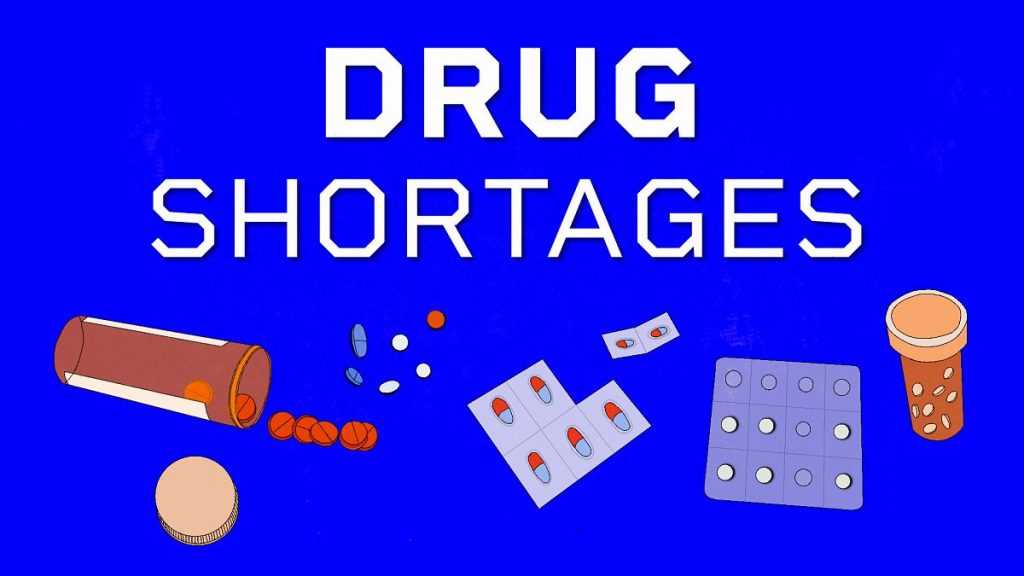The European Union is grappling with a persistent and escalating problem: drug shortages. While supply chain disruptions have long plagued the pharmaceutical landscape, recent years have witnessed record levels of scarcity, impacting access to essential medications ranging from hormone replacement therapies and cancer treatments to vital drugs for managing diabetes. Although some shortages are showing signs of resolution, others persist, highlighting the urgent need for a comprehensive solution. This has propelled the Critical Medicines Act to the forefront of the EU’s health policy agenda. Initially slated as a priority for the new EU Commission, the Act experienced delays, but is expected to materialize in 2025. This legislation aims to address the vulnerabilities exposed during the COVID-19 pandemic, reinforcing EU production, distribution, stockpiling, and joint procurement, while fostering enhanced cooperation between national administrations, pharmaceutical companies, civil society, and the scientific community. Ultimately, the Act seeks to ensure the consistent availability of critical medicines, both in times of stability and during health crises.
The scope of the Critical Medicines Act encompasses essential medicines crucial for public health, including antibiotics, insulin, and painkillers, with the potential for expansion to cover a broader range of vital drugs. The root causes of drug shortages are multifaceted, encompassing geopolitical factors such as the COVID-19 pandemic, the Ukraine-Russia conflict, and Brexit. These global events have disrupted supply chains, creating bottlenecks and shortages. Furthermore, sudden surges in demand driven by disease outbreaks or unexpected supply disruptions due to recalls or quality control issues can exacerbate the problem. Regardless of the underlying cause, drug shortages place patients in precarious situations, causing distress and frustration as access to necessary medications becomes unpredictable. This patient impact has galvanized policymakers to take decisive action to address the underlying systemic issues.
The impetus for the Critical Medicines Act stemmed from the stark realities of the COVID-19 pandemic, a period marked by unprecedented drug shortages. Belgian Public Health Minister Frank Vandenbroucke, a key advocate for the Act, characterized the COVID-19 experience as “one of the worst shortages we ever had.” This prompted a collaborative effort, with 23 EU member states joining Belgium’s call for an EU-wide initiative in May 2023, underscoring the widespread nature of the problem. Vandenbroucke emphasizes that the new legislation should prioritize medicines vulnerable to shortages and address underlying supply chain weaknesses. This necessitates a thorough screening process to identify critical medicines and pinpoint vulnerabilities in their supply chains.
A crucial aspect of the Critical Medicines Act involves fostering cooperation and coordination among EU member states. Vandenbroucke stresses the importance of mutual support and cautions against national stockpiling practices that could inadvertently create shortages for other member states. He advocates for coordinated national stockpiling and protective measures to ensure equitable access to essential medicines across the EU. This collaborative approach is essential to prevent individual nations from exacerbating shortages in others while pursuing their own security.
Another key objective of the Critical Medicines Act is to address Europe’s reliance on external pharmaceutical production. Currently, a significant portion, estimated at 70% to 80%, of Europe’s pharmaceuticals originates from countries like China and India. This dependence creates vulnerabilities in the supply chain, as geopolitical events or production issues in these countries can have a cascading effect on European drug availability. The Act aims to diversify international partnerships and bolster domestic production capacity to mitigate these risks and ensure greater resilience in the pharmaceutical supply chain.
In conclusion, the Critical Medicines Act represents a significant step towards securing a more reliable and resilient pharmaceutical supply chain within the European Union. By addressing the root causes of drug shortages, fostering cooperation among member states, and promoting diversification of production sources, the Act strives to ensure consistent access to essential medicines for all European citizens. This comprehensive approach is crucial not only for managing current shortages but also for mitigating the impact of future health crises and geopolitical disruptions. The Act’s implementation holds the promise of a more robust and secure pharmaceutical landscape, ultimately benefiting millions of patients across Europe.










